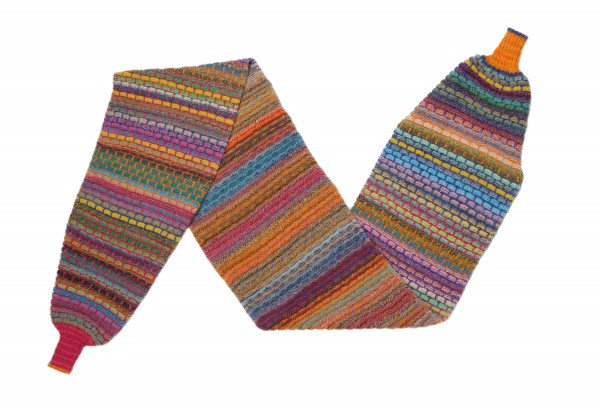Discover with our knitting pattern "Liz" a wonderful sleeve scarf that will capture your heart... more
Discover with our knitting pattern "Liz" a wonderful sleeve scarf that will capture your heart by storm!
This creative project combines warmth, style, and versatility in a unique way.The sleeve scarf in slip-stitch pattern not only delights with its charming appearance but also offers the possibility to wear it as both a scarf and a sweater. An accessory that adapts to your individual style - whether casually draped around the neck or worn as a chic garment over the shoulders.
With various colors, you can unleash your creativity and bring your personal color dream to life. The slip-stitch pattern gives the knitted piece a special texture and adds a touch of elegance.
The sleeve scarf is of medium difficulty to knit but also provides an ideal opportunity for beginners to expand their skills and learn new techniques. Let yourself be carried away by the joy of knitting and create a unique piece that accentuates your personal style. Immerse yourself in this inspiring knitting project and create your own wonderful sleeve scarf.
| Difficulty: |

|
| Needle size: | 3,5 |
| Material: | Wool FINEST, Edition 3 |
| Size: | S M L XL |
Read, write and discuss reviews... more
Customer evaluation for "Shrug "Liz""
Write an evaluation
Evaluations will be activated after verification.
Viewed














































